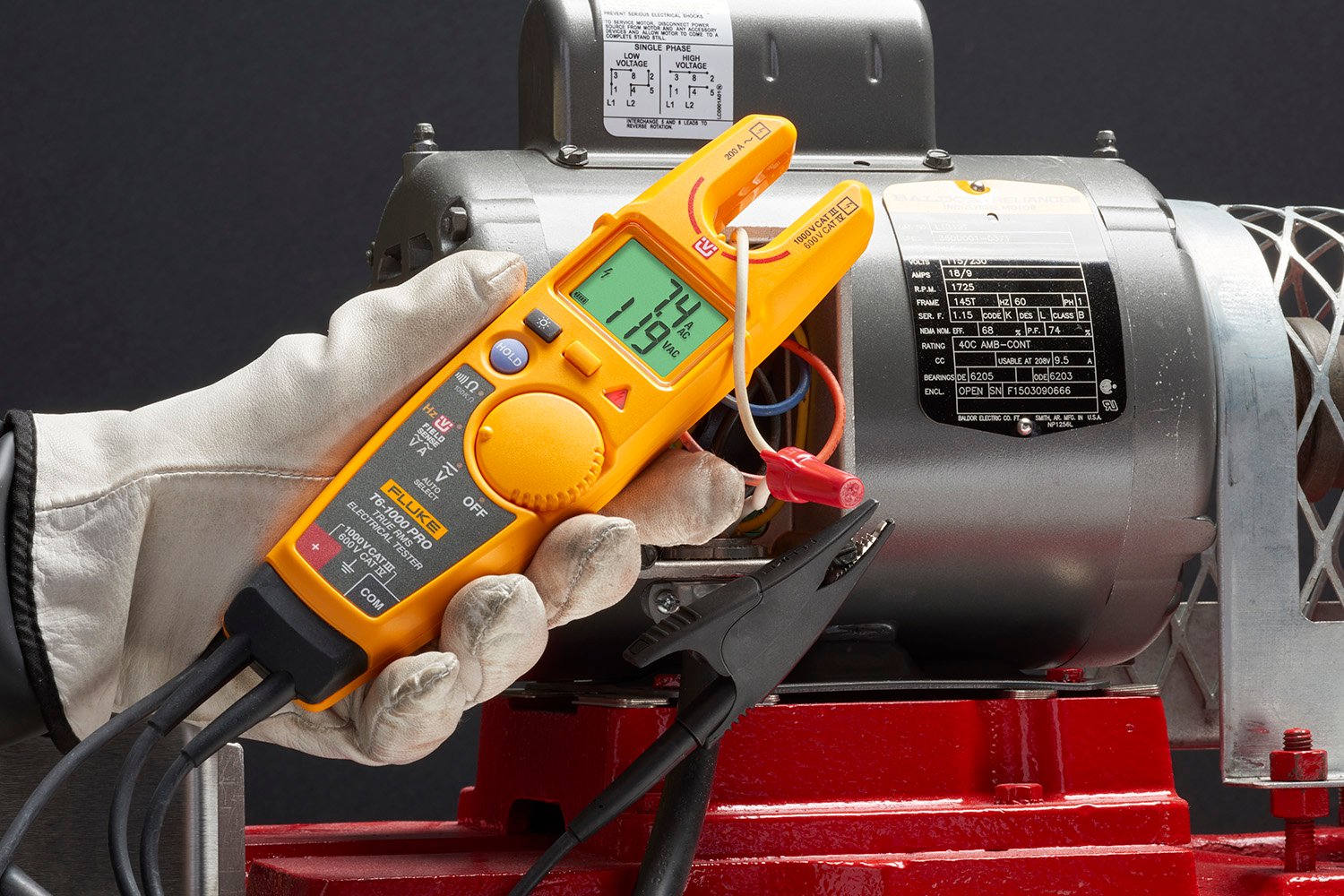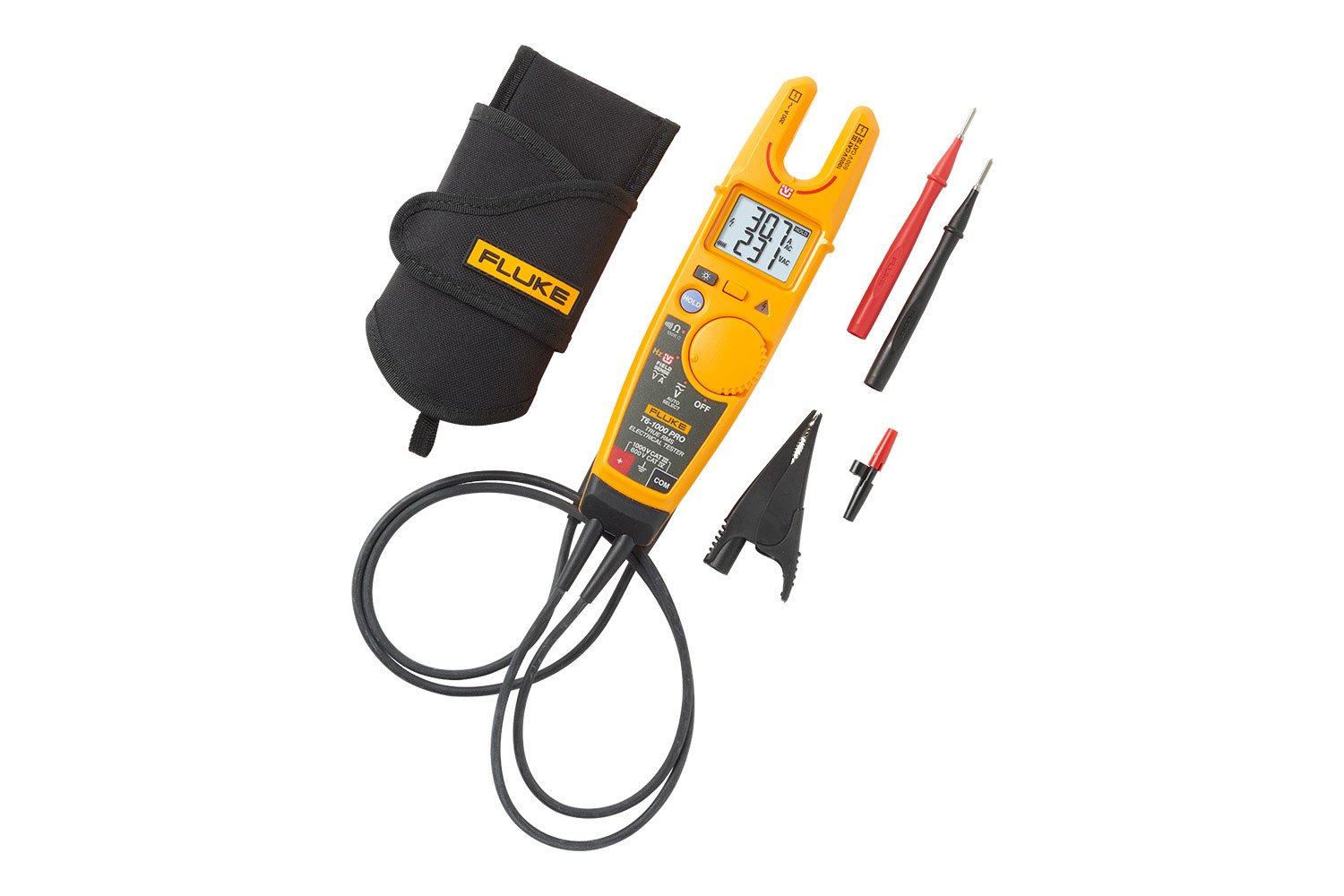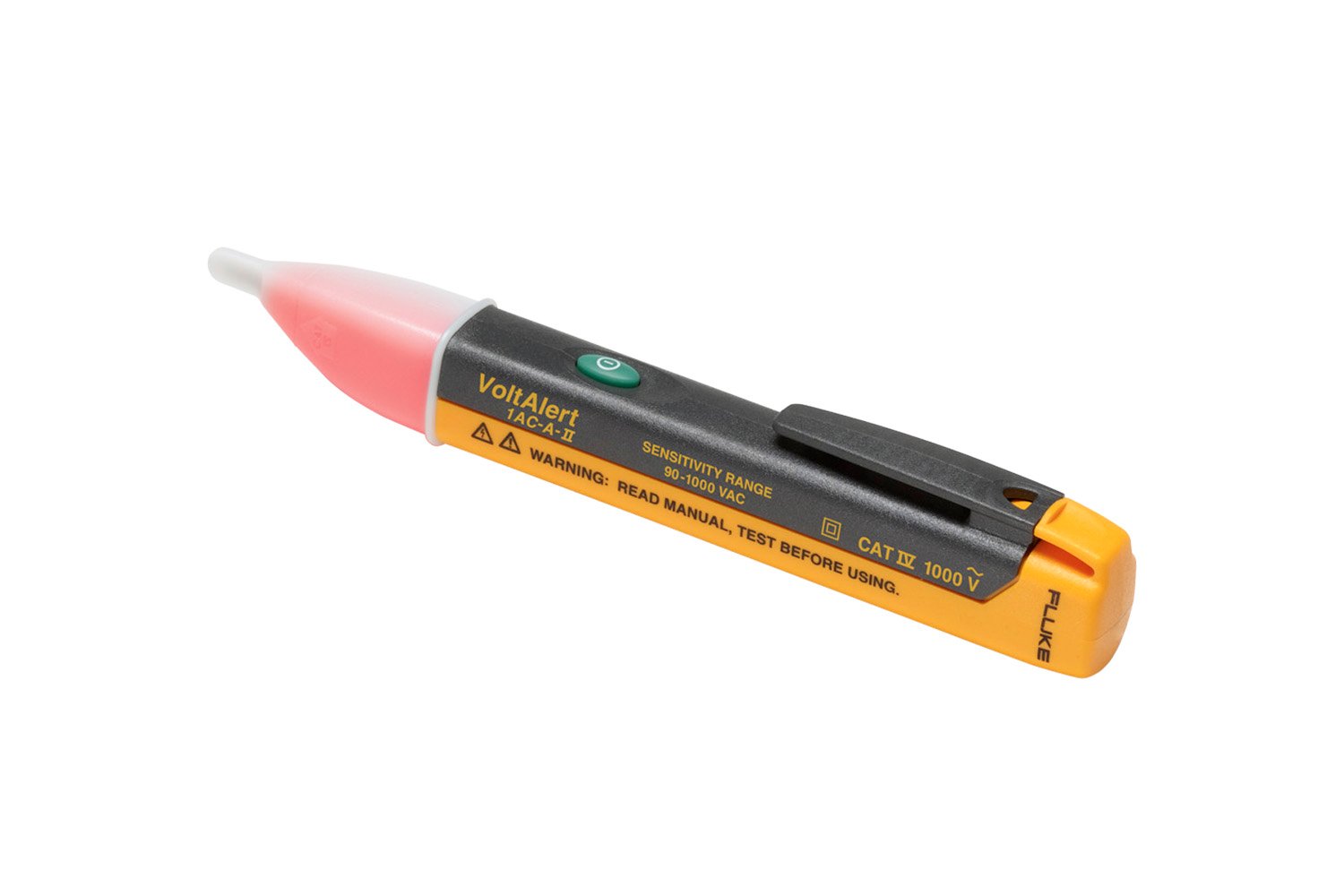Elektrotestere og spennings- og kontinuitetstestere

Flukes utvalg av elektrotestere og spenningsdetektorer er laget for alle bruksområder i nær sagt alle omgivelser. Fra kontaktfrie spenningsdetektorer og spenningstestere med kontinuitetsdetektor til strømtestere med åpen kjeft og til testere med åpen gaffel og FieldSense®-teknologi (for måling av spenning (kun på TN-systemer) og strøm uten testledninger), – disse testerne er nøyaktige, trygge og brukervennlige. Du finner også faserotasjonstestere for motorer, testere for lysstoffrør og spenningsmålere som er tryggere enn solenoidtestere.
Dette er utstyret du trenger i verktøybeltet. Når du har tatt dem i bruk, vil du lure på hvordan du har klart deg uten.
Løsninger med elektrotestere og spenningsdetektorer
Utfør raske tester for tilstedeværelse av spenning og hvor mye samt hva slags strøm en ledning fører. Du trenger svar på disse spørsmålene når du feilsøker elektrisitet.
Fluke T6-1000 PRO elektrotester
T6-1000 PRO sann RMS elektrotester med jordingsklemme og beltehylster
Fluke topols spennings- og kontinuitetstestere
Flukes topols spennings- og kontinuitetstestere er laget for å jobbe på samme måte som deg. De...
T6-600 elektrotester
Nå kan du måle spenning uten testledninger. Vær tryggere, raskere og mer effektiv, hvor som...
Fluke T5-1000 Elektrisk tester
Med Fluke T5 elektriske testere kan du kontrollere spenning, kontinuitet og strøm med ett kompakt...
Fluke T5-600 Elektrisk tester
Med Fluke T5 elektriske testere kan du kontrollere spenning, kontinuitet og strøm med ett kompakt...
Fluke 9040 indikator for faserotasjon
Fluke 9040 er effektiv for måling av faserotasjon der trefaseforsyninger brukes til å drive...
Fluke 1AC II VoltAlert™ Electrical Tester
Neste generasjon kontaktfrie VoltAlert™-spenningstestere for vekselstrøm fra Fluke er enkle å...
Fluke 2AC VoltAlert spenningsdetektor
2AC er det siste tilskuddet til VoltAlert™ serien med kontaktfrie AC-spenningstestere fra Fluke og...
Fluke 9062 indikator for motor- og faserotasjon
Den unike Fluke 9062 indikerer fasefølgens retning og motorrotasjon i tillegg til at du får...
LVD2-spenningsdetektorlampe
Kontaktfri AC-spenningsdetektor og LED-lommelykt satt sammen i én brukervennlig pennlignende stil.
Fluke PRV240 kontrollenhet
Med denne portable kontrollenheten i lommeformat, er det enkelt og trygt å kontrollere...
Elektrisk testerpakke med hylster og 1AC II
Spennings-, kontinuitets- og strømtestersett med hylster. 1AC følger med på kjøpet.
TL80A Grunnleggende elektronisk testledningssett
1 meter lange silikontestledninger, krokodilleklemmer og probespissforlengere, to av hver (rød,...


















